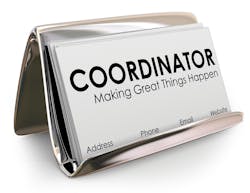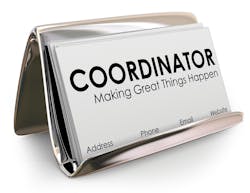The hygienist as implant coordinator
Becoming an IC allows hygienists to expand their careers by combining their clinical knowledge and educational skills while staying in the field of dental hygiene
By Ann-Marie C. DePalma, RDH, MEd, FADIA, FAADH
The profession of dental hygiene is focused on education, so, in practice, patient education becomes the primary avenue of the hygienists’ attention. But hygienists can also use their educational skills to assist the team in being an implant coordinator (IC). Hygienists may seek alternatives to clinical practice for a number of reasons, yet still enjoy the many aspects of dental hygiene. As an IC, a hygienist can expand beyond the operatory to create that “dream opportunity” of combining both clinical knowledge and skills with the time and ability to educate others.
IC positions can take a variety of forms, depending on the practice and the individual’s interests and strengths. This article will review the opportunities available to hygienists as an IC.
An IC can be a team member who only coordinates all aspects of the implant patient’s care within the practice or can be more involved in marketing and educational outreach—every practice is different. A good candidate for the position of IC is someone who is objective, likes to manage multiple tasks independently, technology savvy, outgoing, confident, and enjoys educating others. The ideal candidate can think fast on the fly and communicate effectively. Some practices hire nonclinical or nondental team members for the position, but the hygienist with clinical expertise can be an invaluable asset.
The hygienist understands the patient relationship and can build on that during the implant process. Having the ability to translate clinical concepts into patient-friendly terms helps develop the trust the patient needs to undergo often-complex implant procedures. Beyond patient education, the implant coordinator can be an ambassador for the practice as a marketing coordinator with referral offices.
If employed in a specialty practice, the coordinator can be involved from the initial patient contact through referral back to the general practice. And, even in general practices that handle all implant treatment in-house, the IC can be involved in the process from the beginning. Whether a patient contacts the office by phone, the practice’s website, or through social media, the IC can be the initial point of contact. Answering patient questions and concerns about the treatment process, financial investments, and insurance coverage, the hygienist as IC can provide both reassurance and reliable, trustworthy information. Having the time to discuss options, whether on the phone or in-person, goes a long way in increasing treatment case acceptance.
Duties
Following the initial contact and scheduling, the IC can be involved in the diagnostic phase. Hygienists as ICs are available to handle the medical and dental history review, documentation, and the clinical examination, including exposure of the appropriate radiographs. The IC is also present during the doctor’s evaluation of the patient and case presentation.
Depending on the practice, the doctor may only do the clinically relevant portion and allow the IC to handle all case presentations and other state practice act delegable duties. ICs can also handle informed consents as appropriate. If additional diagnostic testing is required, the IC can coordinate aspects of that as well. Then, once the patient has agreed to move forward with treatment, the IC can coordinate scheduling either in-office or with the referring practice. All implant parts and pieces needed for the surgery and/or restorative phase are required to be available, and the IC serves as inventory control for parts. Working in conjunction with the implant supplier’s sales representative, the IC can obtain the best prices and products for both the practice and the patient. During and following treatment, the IC can be the patient’s go-to contact for the practice.
As far as patient education, the hygienist as IC is an invaluable resource. Patients have different personalities and learning styles, and hygienists are well-versed in handling them. Whether a patient is one of the four basic personality types—expressive, driver, analytical, or amiable—hygienists can tailor the implant education to meet each patient’s style and needs. Using handheld models, interactive videos, or tutorials, in addition to printed materials, ICs have a number of tools at their disposable to help patients understand the implant process. During the case presentation and education process, hygienists can describe the implant as “a man-made root that is a closest cousin to the natural tooth,” as described during a recent implant continuing education program.
Having the ability to translate clinical concepts into patient-friendly terms helps develop the trust the patient needs to undergo often-complex implant procedures.
As the face of the practice for implants, the IC can be involved in various aspects of marketing. The technology-savvy hygienist can use the practice’s website and social media to spread the word about the implant practice. Meeting with local referring practices and teams helps cement relationships with these practices to serve as referral sources. These meetings can be lunch-and-learns or informal presentations. Providing nontechnical educational programs for the public at local hospitals, medical facilities, community centers, health fairs, or other community activities can increase patient referrals.
Many ICs organize and manage implant study clubs that either are associated with the practice or are local initiatives. Study clubs offer dedicated educational programs for dentists, hygienists, assistants, and business team members, in addition to networking opportunities. Each group can have a program designed with their specific needs in mind about implants or other professionally related topics. These meetings may or may not provide continuing education credits, but regardless, they offer teams valuable insight and information. ICs can handle all aspects of meeting planning—from venue selection, registration, costs, meal selection, and feedback/follow-up. Often, product manufacturers can sponsor these events to keep costs to a minimum for participants.
There are so many ways hygienists can enter the world of the IC. Programs from implant companies— such as Straumann—or implant associations—such as the International Congress of Oral Implantologists (ICOI) and the Association of Dental Implant Auxiliaries (ADIA)—provide a vast array of knowledge. Whether the hygienist is new to implantology or seasoned, these programs offer a foundation for the shifting role from clinical to administrative.
Straumann’s program is a two-day event that focuses on participants’ strengths, establishing clearly defined roles and responsibilities, communication planning, implant components and workflow, and implementing metrics for success.
The IC program from the ICOI/ADIA includes hygiene, assisting, and practice management certifications. The IC certification program is a one-day program that reviews implant history and rationale, implant terminology and indications, as well as communication skills and strategies—creating an environment that increases case acceptance, appointment sequencing, and referrals. Depending on the hygienist’s interests, each of these programs offers participants insights into the world of the IC by presenters who have “walked the implant coordinator walk.” Educational opportunities for the IC are also available from other implant companies and associations.
Shifting from clinical hygiene to IC offers hygienists the opportunity to grow within the hygiene profession. Many hygienists feel trapped by the rigors of clinical practice and are unaware of the opportunities that may exist in their own practices or beyond. Researching the role of the IC offers hygienists the potential to expand their careers and knowledge while still staying in the field of dental hygiene.
For more information on Straumann’s implant coordinator program, visit straumanneducation.com/IC1-2018.php.
For more information on International Congress of Oral Implantologists and Association of Dental Implant Auxiliaries programs, visit adiaonline.org.
Author’s note: The author did not receive any compensation from Straumann or International Congress of Oral Implantologists or the Association of Dental Implant Auxiliaries for this article.
ANN-MARIE C. DEPALMA, RDH, MEd, FADIA, FAADH, is the 2017 recipient of the Esther M. Wilkins Distinguished Alumni Award of the Forsyth School for Dental Hygiene/Massachusetts College of Pharmacy. She is a Fellow of the American Academy of Dental Hygiene and the Association of Dental Implant Auxiliaries, as well as a continuous member of ADHA. She presents continuing education programs for dental team members on a variety of topics. Ann-Marie has authored chapters in several texts for dental hygiene. She can be reached at [email protected].

